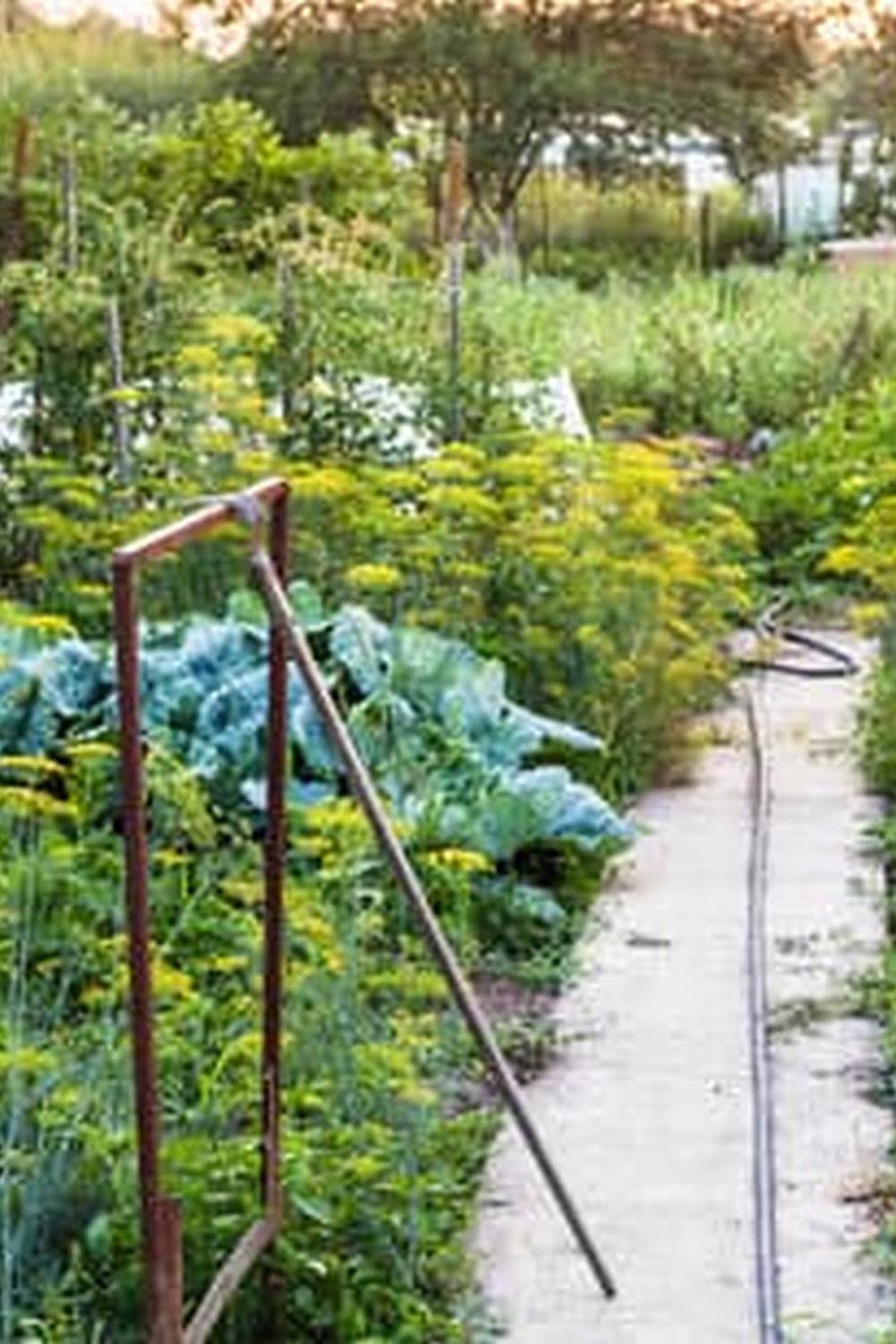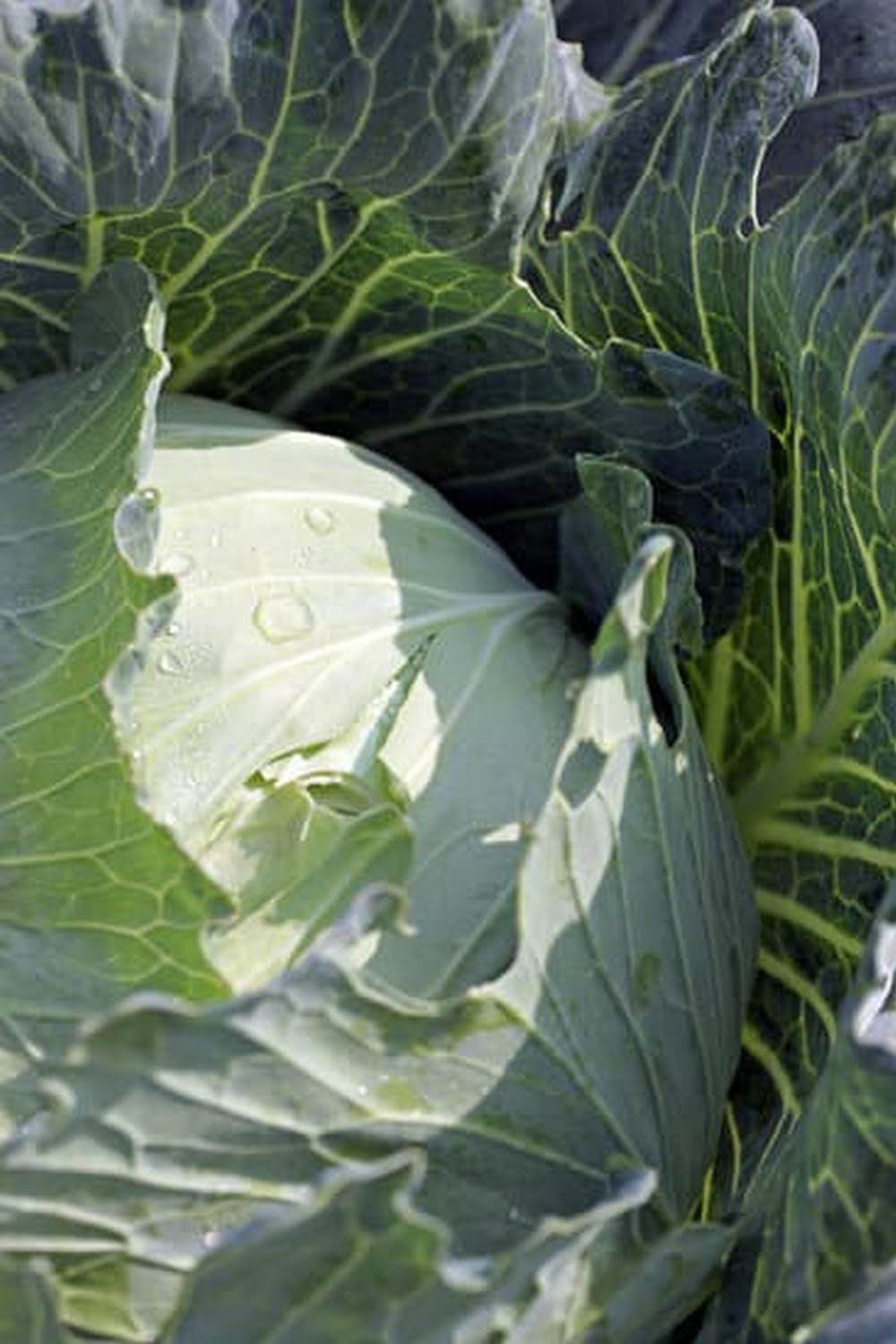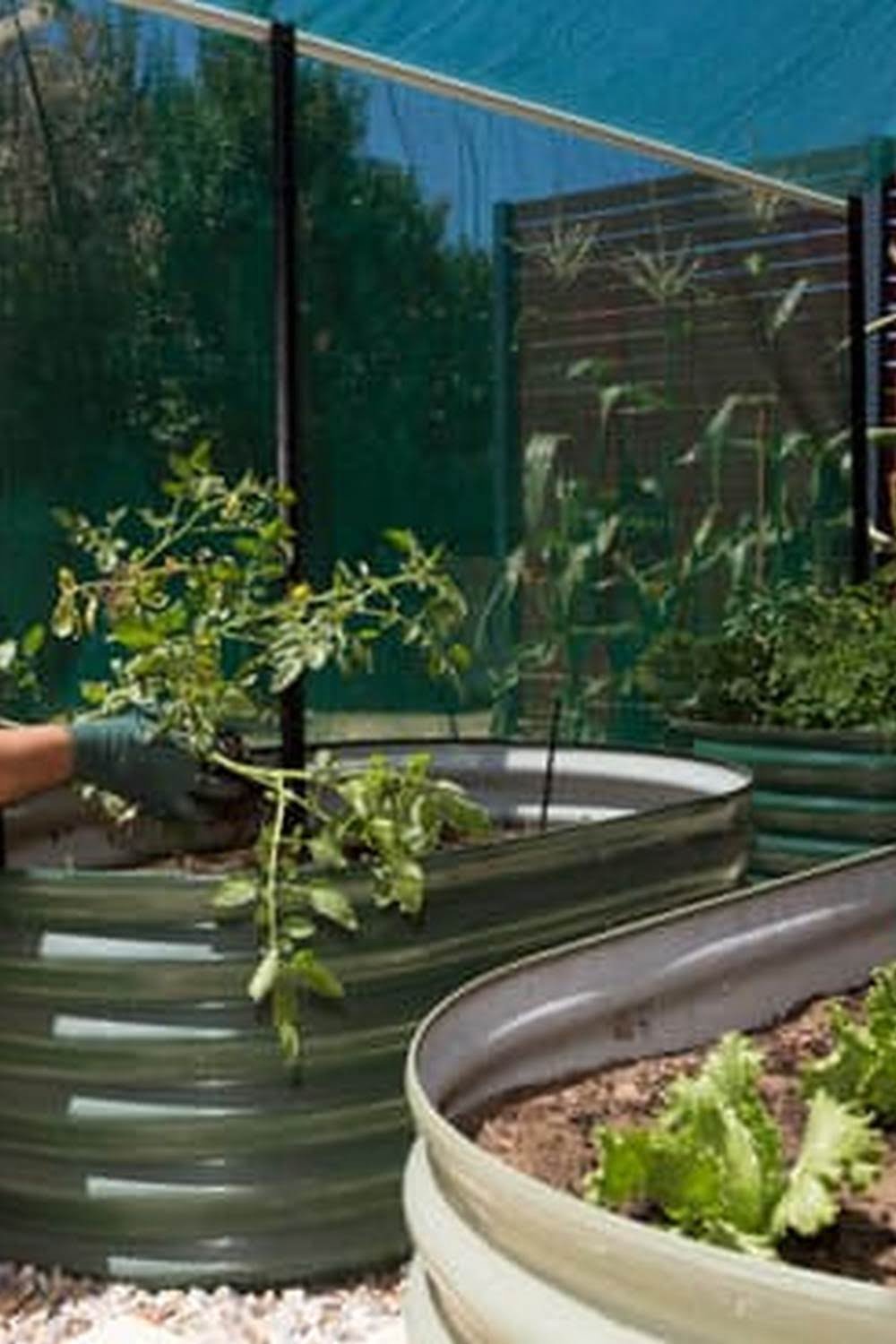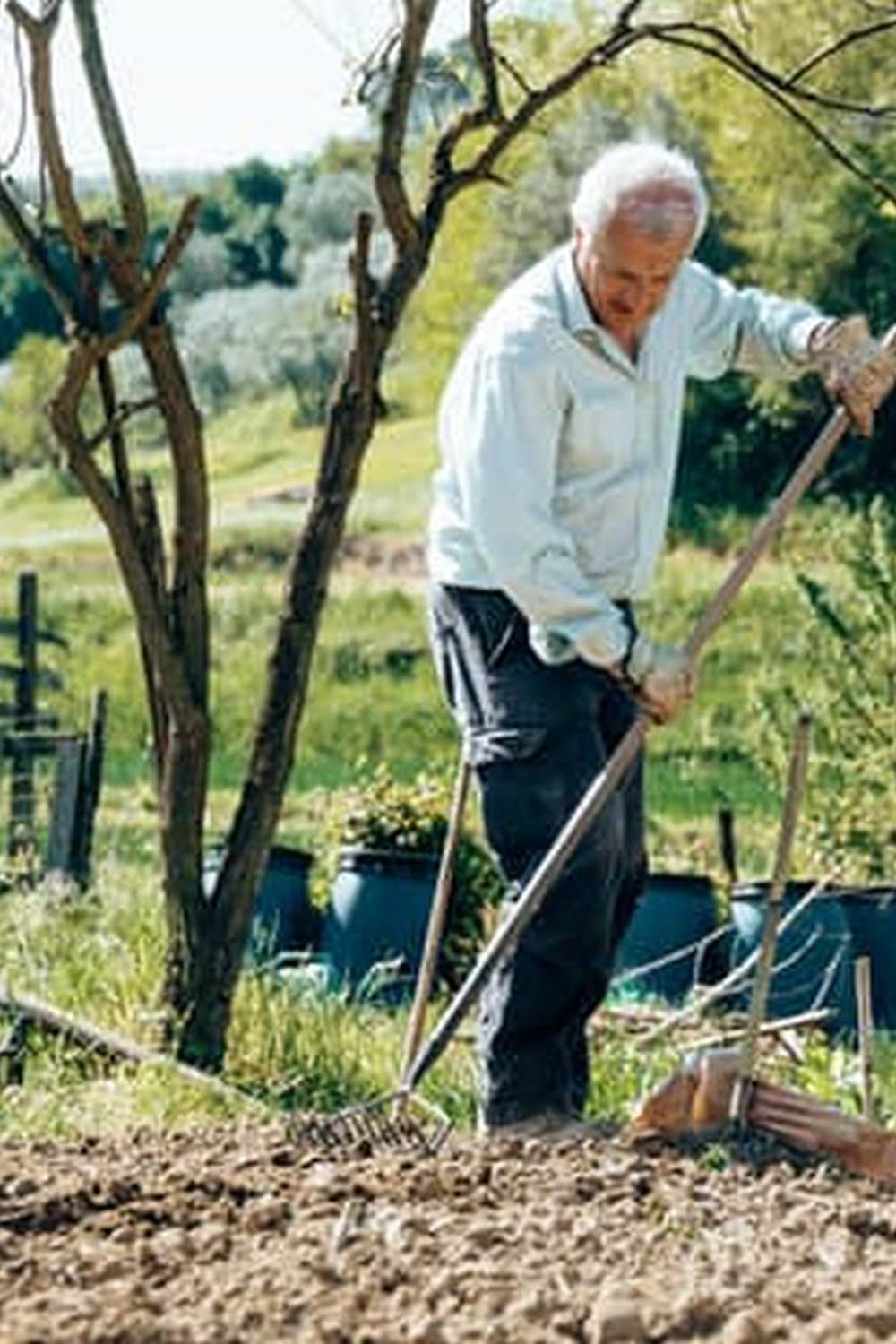Growing A Vegetable Garden In Clay Soil
Clay soil is a type of soil that is dense and has a high percentage of clay particles. It is heavy and can be difficult to work with, but it can be a great soil for growing vegetables.
Clay soil has a high water retention capacity, which means it can hold a lot of water. This is beneficial for vegetable gardens, because it means the soil will stay moist longer, which is important for plants that need consistent moisture.
Clay soil is also rich in nutrients, which is beneficial for vegetable gardens. It is important to add organic matter to clay soil to help improve its texture and drainage. Adding compost, manure, or other organic matter will help to loosen the soil and improve its ability to absorb and retain water.
If you have clay soil and are planning a vegetable garden, here are a few tips to help you get started:
1. Add organic matter to the soil to improve its texture and drainage.
2. Amend the soil with compost, manure, or other organic matter to improve its nutrient content.
3. Plant vegetables that are suited to clay soil. Some vegetables that do well in clay soil include tomatoes, peppers, cabbage, broccoli, and cauliflower.
4. Water the garden regularly, especially during the first few weeks after planting.
5. Mulch the garden to help retain moisture and protect the soil from erosion.
6. Fertilize the garden regularly with a balanced fertilizer.
7. Weed the garden regularly.
8. Harvest the vegetables when they are ripe.
Resting Vegetable Garden Soil
By: Dr. Shane Johnson
As a professional horticulturist, I often get asked about the best way to prepare a garden bed. Many people seem to think that there is a lot of complicated magic involved in creating the perfect garden, but the truth is that it’s actually quite simple. All you need is a good quality soil and a little bit of preparation.
One of the most important things to consider when preparing a garden bed is the soil type. Not all soils are created equal, and some are better suited for gardening than others. If you’re not sure what kind of soil you have, you can always have it tested at your local gardening center.
Once you know your soil type, you can start preparing it for gardening. If your soil is heavy and clay-like, you’ll need to add some organic matter to it to make it more friable. You can do this by adding compost, peat moss, or leaf mold to the soil. If your soil is sandy or has a lot of rocks in it, you’ll need to add some organic matter as well, but you can also add some sand or grit to help improve the texture.
Once your soil is ready, you can start planting your vegetables. Just make sure to loosen the soil up a bit before planting, and be sure to water them regularly. With a little bit of preparation and some TLC, you’ll be enjoying homegrown vegetables in no time!
How Do I Prepare Soil For A Vegetable Garden
?
There are a few things to consider when preparing soil for a vegetable garden. First, you’ll need to test the soil to see what kind of amendments it needs. You can get a soil test kit from your local garden center. The kit will tell you the pH of the soil and what kind of nutrients it is missing.
If the soil is acidic, you’ll need to add lime to raise the pH level. If the soil is low in nitrogen, you’ll need to add manure or a nitrogen-rich fertilizer. Once you know what the soil needs, you can add the appropriate amendments.
Next, you’ll need to loosen the soil. You can do this with a garden fork or tiller. Loosening the soil will help the amendments to penetrate it better. Then, you’ll need to rake the soil smooth.
Finally, you’ll need to add compost. Compost helps to improve the soil’s structure, fertility, and drainage. You can either add compost to the soil before planting or mix it in when you’re weeding.
By following these steps, you can create a healthy soil for your vegetable garden.
How To Test Your Soil For A Vegetable Garden
If you are like most people, you want to have a vegetable garden but you don’t know how to test your soil. Testing your soil is important so that you can amend it to make sure your plants have the best possible chance for success. There are several ways to test your soil, but the most common way is to use a soil test kit.
Testing your soil is important because it will tell you what kind of amendments your soil needs. The three main things that you need to test for are pH, nitrogen, and phosphorus. pH is a measure of how acidic or alkaline your soil is. Most vegetables prefer a soil pH of 6.5-7.0, but there are some that prefer a more acidic or alkaline soil. You can test your soil’s pH with a soil test kit or with a pH meter.
Nitrogen is important for plant growth, and most vegetables need a soil that has a nitrogen level of between 5 and 20 parts per million (ppm). You can test for nitrogen with a soil test kit or with a nitrogen meter.
Phosphorus is also important for plant growth, and most vegetables need a soil that has a phosphorus level of between 10 and 40 ppm. You can test for phosphorus with a soil test kit or with a phosphorus meter.
Once you have tested your soil for pH, nitrogen, and phosphorus, you will know what amendments your soil needs. If your soil is too acidic, you will need to add lime to raise the pH level. If your soil is low in nitrogen, you will need to add nitrogen fertilizer. If your soil is low in phosphorus, you will need to add phosphorus fertilizer.
Amending your soil can be a little bit tricky, so it is best to consult a soil amendment chart or a soil amendment calculator. These charts and calculators will tell you how much of each amendment you need to add to your soil to reach the desired level.
Once you have amended your soil, you will need to test it again to make sure the amendments have worked. You can test your soil’s pH, nitrogen, and phosphorus levels with a soil test kit or with a meter.
Testing your soil is a important part of gardening, so make sure to test your soil before you start your garden.
Vegetable Garden Soil Fertilizer
What kind of fertilizer should I use for my vegetable garden?
When it comes to fertilizing your vegetable garden, there are many different types of fertilizers to choose from. However, not all fertilizers are created equal, and not all fertilizers are appropriate for use in vegetable gardens.
One of the most important things to remember when choosing a fertilizer for your vegetable garden is to select a fertilizer that is specifically designed for use in vegetable gardens. There are many different types of vegetable garden fertilizers on the market, and each one is formulated to meet the specific needs of vegetable gardens.
In addition to selecting a fertilizer that is specifically designed for vegetable gardens, it is also important to select a fertilizer that is high in nitrogen, phosphorus, and potassium (NPK). Vegetables need a lot of nitrogen, phosphorus, and potassium to grow healthy and strong, and a fertilizer that is high in NPK will provide your garden with all the nutrients it needs.
There are many different types of NPK fertilizers on the market, and each one is formulated to meet the specific needs of vegetable gardens. Soil test kits are available to help you determine the specific needs of your garden, and once you know the specific needs of your garden, you can select a fertilizer that is high in NPK to meet those needs.
When it comes to fertilizing your vegetable garden, there are many different types of fertilizers to choose from. However, not all fertilizers are created equal, and not all fertilizers are appropriate for use in vegetable gardens.
One of the most important things to remember when choosing a fertilizer for your vegetable garden is to select a fertilizer that is specifically designed for use in vegetable gardens. There are many different types of vegetable garden fertilizers on the market, and each one is formulated to meet the specific needs of vegetable gardens.
In addition to selecting a fertilizer that is specifically designed for vegetable gardens, it is also important to select a fertilizer that is high in nitrogen, phosphorus, and potassium (NPK). Vegetables need a lot of nitrogen, phosphorus, and potassium to grow healthy and strong, and a fertilizer that is high in NPK will provide your garden with all the nutrients it needs.
There are many different types of NPK fertilizers on the market, and each one is formulated to meet the specific needs of vegetable gardens. Soil test kits are available to help you determine the specific needs of your garden, and once you know the specific needs of your garden, you can select a fertilizer that is high in NPK to meet those needs.

If you’re looking to get into vegetable gardening, or are just looking for some tips on how to make your current garden better, then you’ve come to the right place! My name is Ethel and I have been gardening for years. In this blog, I’m going to share with you some of my best tips on how to create a successful vegetable garden.





